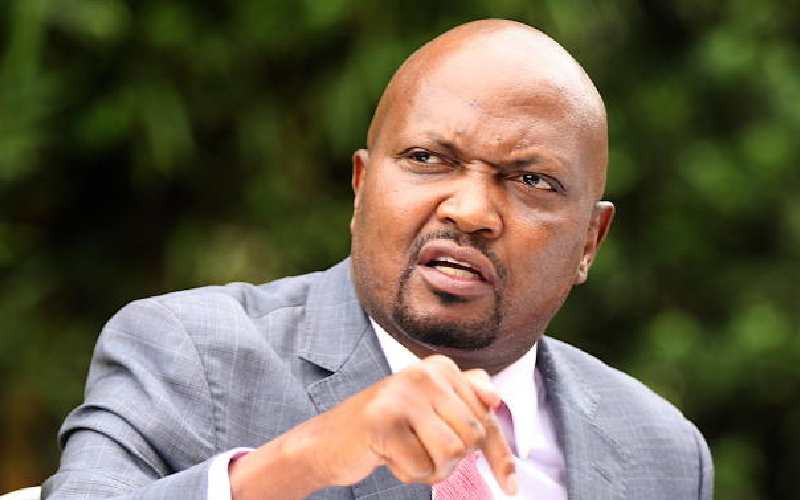
One month after his election as treasurer of the Students Organisation of the University of Nairobi, Moses Kuria was served with a letter of expulsion by the institution's senate. It took the intervention of opposition leader Jaramogi Oginga Odinga to save him. Odinga hired him a lawyer, Gerald Otieno Kajwang, who obtained a court injunction against the decision.
Long before, Kuria had been giving offence right from his childhood. The former altar server at Gatundu Catholic Church was expelled from Ituru Secondary School, where he claims to have been bullied, and sat his secondary school examination at Thika High School.